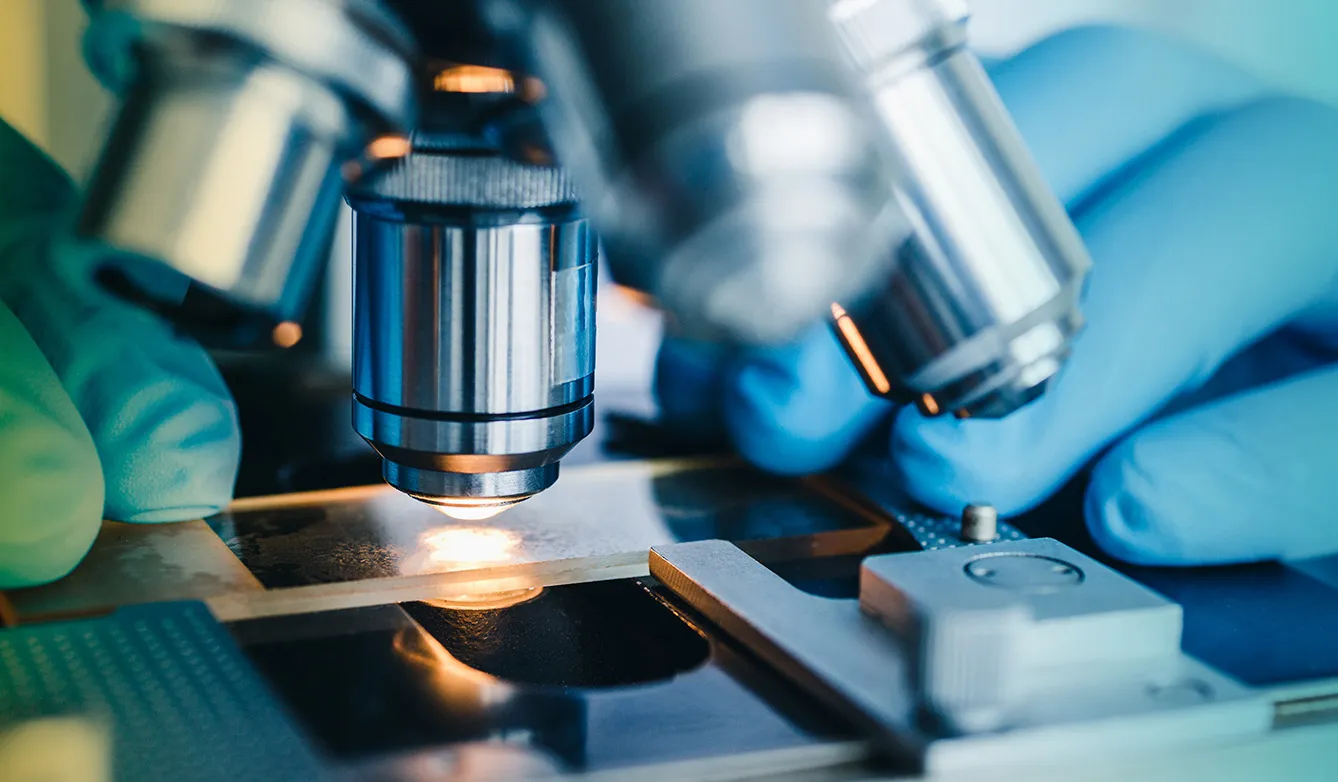A lung, an intestine, and a brain lie side by side in a laboratory. No, this is not a scene from some modern-day Frankenstein. Far from it, the organs in question are miniature artificial versions of the stuff that makes up our bodies. These organs live on credit-card-sized plastic chips and are set to revolutionize drug discovery and personalized medicine. The so-called “organs-on-a-chip” is a new technology, and the Latvia-based Cellbox Labs is one of the startups developing it.
What does the organ-on-a-chip look like?
The Cellbox Labs organ-on-a-chip is a plastic chip, inside of which tiny microchannels sit one atop the other. One channel replicates blood vessels and the other tissue. Between them, a layer of porous membrane mimics the body’s membranes.
The Cellbox Labs team is currently working on an intestine-on-a-chip and lungs-on-a-chip and plans to continue with the liver, brain, and heart in the future. This futuristic technology has several potential applications. One is drug discovery. Currently, this is a costly, time-consuming, and failure-prone endeavor involving animals whose internal systems do not fully represent the human body.
Compared to the conventional approach, Cellbox Labs’ organs-on-a-chip offer several benefits. Aside from the ethical gains, they ensure steady absorption, meaning that anything you enter into the system reaches the cells directly without being absorbed along the way. They also ensure good repeatability. Plus, the oxygen flow can be controlled in all testing stages.
In addition, existing drug development processes do not account for the huge natural diversity of human bodies and how they function and react to different substances. By creating personalized organs-on-a-chip, using the real cells of an individual, we will be able to test how a specific drug or a combination of them will affect the single user.
Fast forward to the future when the technology is finalized, and picture this: you provide cell samples to a medical establishment, which creates replicas of your organs. Next time you visit the doctor, they establish the cause of your symptoms and test the possible treatments on your bespoke organs-on-a-chip. Finally, you receive a tailored treatment plan.
Hoping for a human-on-a-chip
Cellbox Labs’ goal is to build a human-on-a-chip by linking the individual modules. This would make it possible to test for side effects and the holistic impact of a drug on the body. Organs-on-a-chip also opens up an entirely new opportunity to test how a person would react to treatment even before they develop a disease. Indeed, it is possible to grow diseases in the organs.
Astronauts also stand to benefit from the organs-on-a-chip technology. The space environment causes specific challenges, such as difficulties with digestion, which require them to take specific probiotics. The organ-on-a-chip could provide a platform for finding the right combination of probiotics to improve astronauts’ experience. Cellbox Labs has managed to grow microbiota on a chip to allow for such testing.
Cellbox Labs: knowledge in science and business
With three co-founders – Artūrs Ābols, Gatis Mozoļevskis, and Roberts Rimša – Cellbox Labs’ core team combines scientific backgrounds with business experience. The startup dates back to 2019, when the Latvian Biomedical Research and Study Centre (BMC) started collaborating with the Institute of Solid State Physics at the University of Latvia (ISSP). The BMC was working on cancer biomarkers and had heard of organs-on-a-chip, which coincided nicely with the ISSP’s expertise in microfluidics, which is vital for producing such chips. Since then, Cellbox Labs has gone on to win grants and competitions.
Compared to other companies working on organs-on-a-chip, the Latvian startup has chosen to approach biology from an engineering perspective. It does not piece the organs together from ready-made components and is working to ensure ease of use by involving artificial intelligence and machine learning technologies.







